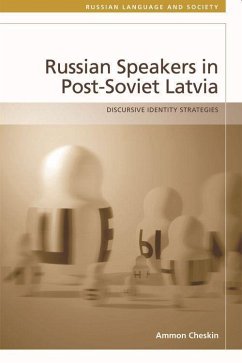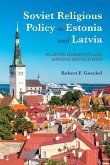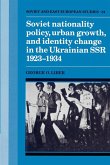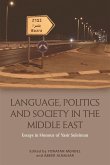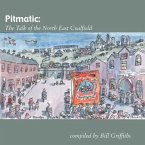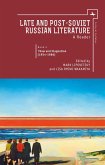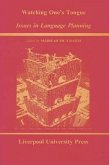Series Editor: Lara Ryazanova-Clarke Books in this series examine the interrelationships between Russian language and society. As language is often a central issue within Russian culture, anthropology, history, politics and sociology, the series provides a forum for scholars across several disciplines to examine these issues and expand the field of Russian Studies. 'Cheskin's book is a valuable contribution to the burgeoning literature on discursive approaches to identity formation. The author convincingly shows how Russians in Latvia have managed to carve out an identity space between nationalising Latvian discourses and Moscow's "compatriot" discourse. This space has gradually opened up since Latvian independence, making room for a variety of hybrid Russian-Latvian identities.' Pål Kolstø, University of Oslo The political shocks of the 2014 Ukrainian crisis have been felt in many former Soviet countries, not least Latvia, where over 35 per cent of the population are native Russian speakers. At a time when analysts and commentators are unsure about Russia's future plans to intervene on behalf of their 'compatriots', this study provides a detailed political and cultural analysis of Russian-speaking identity in Latvia. By using Russian-speakers in Latvia as a specific case study, this volume also offers a fresh methodological approach to the study of discourses and discursive strategies. It outlines a coherent methodology to study the evolution of discourses over time, rather than a single de-contextualised and static time period. Drawing on media analysis, elite interviews, focus groups and survey data, this volume situates the identity strategies of Russian speakers within the transformations of the post-Soviet era. By assessing political, cultural and economic links with their home state (Latvia) and their potential kin-state (Russia), it offers important insights into the complex identity positions of Latvia's Russian speakers, and how these positions have evolved in Latvia since the late Soviet period. At a historical moment when many will question the loyalty of Russian speakers to their various 'host states', this book provides a timely, scholarly account of ethnic politics in Latvia. It also offers a methodological framework that allows for the mapping of trends in discursive strategies, exploring how they evolve through time. Ammon Cheskin is a lecturer in Nationalism and Identity in the Department of Central and East European Studies, the University of Glasgow. Cover image: from the project Artconstitution, 2003, Alexander Sigutin. Used with the permission of the artist and S.ART (Petr Vois gallery). Cover design: Michael Chatfield [EUP logo] www.euppublishing.com ISBN 978-0-7486-9743-4 Barcode

